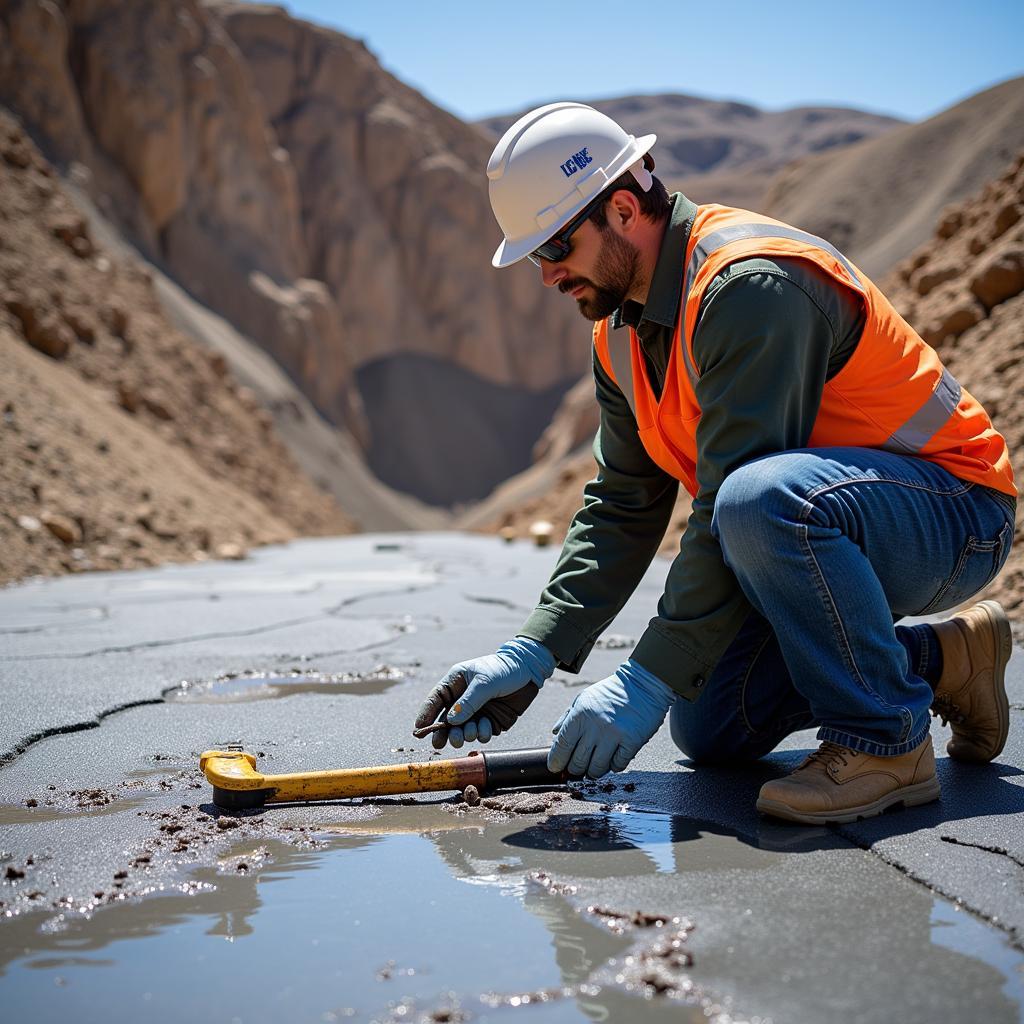Western Pit Liners: The Unsung Heroes of Liquid Containment
October 17, 2024Western Pit Liners are a crucial component in various industries, acting as a protective barrier between stored liquids and the environment. These heavy-duty geomembrane liners are specifically designed to withstand the harsh conditions often found in western regions, ensuring safe and responsible liquid containment.
Why Western Pit Liners Are Essential
From agricultural operations to industrial facilities, western pit liners play a vital role in:
- Protecting groundwater: By preventing leaks and spills from contaminating underlying aquifers, these liners safeguard the quality of precious water resources.
- Ensuring regulatory compliance: Many industries are subject to stringent environmental regulations, and western pit liners help businesses meet and exceed these requirements.
- Preventing soil contamination: The impermeable nature of these liners prevents hazardous substances from seeping into the surrounding soil, preserving soil health and preventing long-term environmental damage.
Choosing the Right Western Pit Liner: Key Considerations
Selecting the appropriate western pit liner is crucial for optimal performance and longevity. Factors to consider include:
- Material: Different geomembranes offer varying levels of chemical resistance, UV stability, and puncture resistance. Common materials include HDPE (High-Density Polyethylene), LLDPE (Linear Low-Density Polyethylene), and PVC (Polyvinyl Chloride).
- Thickness: The thickness of the liner directly correlates with its durability and ability to withstand stress. Factors such as the type of liquid being stored, the size of the pit, and potential environmental stresses influence the ideal thickness.
- Installation method: Proper installation is essential for ensuring a leak-proof barrier. Methods include wedge welding, extrusion welding, and heat seaming, each requiring specialized equipment and expertise.
Maximizing the Lifespan of Your Western Pit Liner: Maintenance Tips
While western pit liners are designed for durability, regular maintenance can significantly extend their lifespan and prevent premature failures. Key maintenance practices include:
- Regular inspections: Inspect the liner visually for any signs of wear and tear, punctures, or stress cracks, paying close attention to seams and corners.
- Prompt repairs: Address any damage immediately using appropriate repair patches and techniques to prevent leaks and maintain the integrity of the liner.
- Vegetation control: Keep the area surrounding the liner clear of vegetation, as roots can penetrate and compromise the liner’s integrity.
 Inspecting a Western Pit Liner for Damage
Inspecting a Western Pit Liner for Damage
Western Pit Liners: A Wise Investment for a Sustainable Future
Investing in high-quality western pit liners is not just about compliance; it reflects a commitment to environmental stewardship and responsible business practices. By choosing durable, properly installed, and well-maintained liners, businesses contribute to:
- Protecting our most precious resource: Water is essential for life, and western pit liners play a vital role in safeguarding groundwater from contamination.
- Reducing environmental liabilities: Proper liquid containment minimizes the risk of costly cleanup efforts and potential legal ramifications associated with environmental damage.
- Promoting sustainability: Durable pit liners contribute to a more sustainable future by minimizing waste and pollution, ensuring responsible resource management for generations to come.
FAQs about Western Pit Liners
What is the average lifespan of a western pit liner?
The lifespan varies depending on factors like material, thickness, installation quality, and maintenance, but a well-maintained liner can last for 10-20 years or even longer.
Can western pit liners be repaired?
Yes, minor damages like punctures or tears can often be repaired using specialized patches and adhesives designed for geomembranes.
Do western pit liners require any special permits for installation?
Regulations vary depending on location and industry. It’s crucial to consult with local authorities to determine specific permitting requirements.
Need Expert Guidance on Western Pit Liners?
Choosing and maintaining the right western pit liner is crucial for ensuring environmental protection and regulatory compliance. For expert advice and customized solutions tailored to your specific needs, contact us today at [Phone Number] or email [Email Address]. Our team of specialists is ready to assist you in making informed decisions regarding your liquid containment needs. We’re located at [Address] and offer 24/7 customer support.